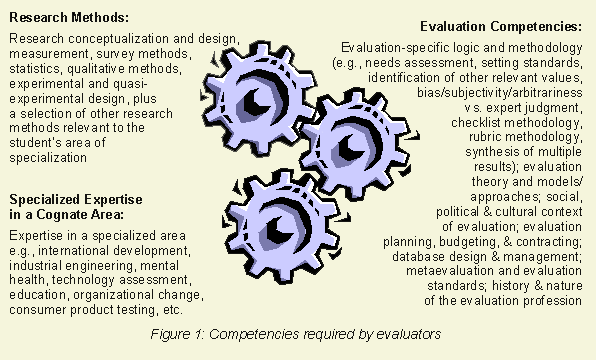|
What is Evaluation?
|
| The term "evaluation"
is used in different ways across disciplines, and is often defined quite
narrowly. Professional evaluation is defined here as the systematic
determination of the quality or value of something. Evaluation may be
done for the purpose of improvement, to help make decisions about the
best course of action, and/or to learn about the reasons for successes
and failures. Some of the things we routinely evaluate include: organizations, institutions, policies, strategies, programs, projects, products, services, systems, processes, performance, job candidates, jobs, and proposals. Interestingly, there is a common logic and methodology for how we evaluate all of these things: (1) conduct a systematic analysis to determine what criteria distinguish high quality/value from low quality/value in this context; (2) dig further to ascertain what levels of performance should constitute excellent vs. mediocre vs. poor performance on those criteria; (3) measure performance; and (4) combine all of the above information to draw valid evaluative conclusions. For any given evaluation, there is a range of possible approaches for completing the above four steps. If the primary purpose of the evaluation is for accountability, then it is important that the evaluation is independent (i.e., none of the evaluation team should have a vested interest in whether the results are good or bad). But if independence is not essential and organizational learning is key, an evaluation can be conducted with a degree of stakeholder participation. Some evaluations involve community members, consumers, staff, managers, funders, or a combination of these groups. The best learning organizations tend to use both independent and participatory evaluations to give them multiple perspectives on how they are doing. The competent evaluator's toolkit and knowledge base consists of three interrelated parts: a solid grounding in research design and methodology; content knowledge and skills pertaining to a particular area of specialization; and a range of evaluation competencies that includes evaluation theory, evaluation-specific methodology, and practical know-how (see Figure 1). |
 |
|
|